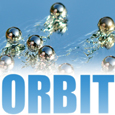Reading an article
Lesson idea. Reading scientific articles moves students beyond textbook learning and of course, helps expand their knowledge. More than this, encouraging reading offers opportunities to compare the messages of popular science writing with the writing for academics. For example, students could compare articles written on the MMR vaccine by 'behind the headlines' bloggers with some mainstream pieces. They could discuss scientific communication, its popularity, the need to explain terms, the use of images; the use of terminology, and sometimes, the complete avoidance of terminology. As teacher, you could instigate discussion of peer review, the process of publishing and the structure of academic articles. You could encourage students to write a blog, or a 'wiki' on science and to think about science communication in whatever context. The place to start could be something in the news; a box of articles or a set of bookmarks you've collected. Included here are links to some less obvious sources of science articles.
Teaching approach. The resource relates to the importance of:
- Scientific literacy(topic).
- Science citizenship(topic) - understanding science in its context.
- Literacy - understanding the role of different media in dissemination.
- Scientific understanding of particular concepts chosen.
- scientific language(ta).
- scientific method(ta).
It can be delivered through a combination of homework(ta) (perhaps to find an interesting article), group work(ta) to explore various articles (perhaps in a carousel), and/or use of ICT(i) including PowerPoint files to encourage students to present an area they are interested in. (edit)
| Resource details | |
| Title | Reading an article |
| Topic | [[Topics/Scientific literacy|Scientific literacy]], [[Topics/Science citizenship|Science citizenship]], [[Topics/Reading skills|Reading skills]] |
| Teaching approach | [[Teaching Approaches/Homework|Homework]], [[Teaching Approaches/Language|Language]], [[Teaching Approaches/Group work|Group work]], [[Teaching Approaches/Scientific method|Scientific method]] |
| Learning Objectives | Depending on the activity chosen, learning outcomes may be:
|
| Subject | [[Resources/Literacy|Literacy]], [[Resources/Secondary|Secondary]], [[Resources/Science|Science]] |
| Age of students / grade | [[Resources/Secondary|Secondary]], [[Resources/KS4|KS4]], [[Resources/KS3|KS3]]
|
| Related ORBIT Wiki Resources | See Listening to scientists - a collection of interviews on ORBIT |
| Files and resources to view and download | Some sources of articles, that may suit ages 14-19
|


